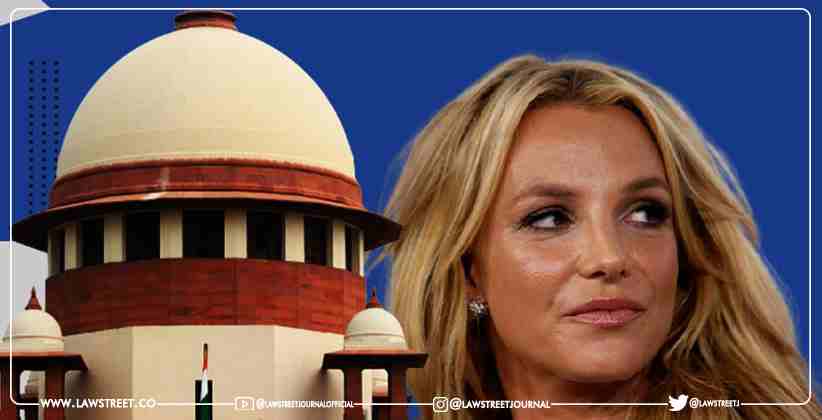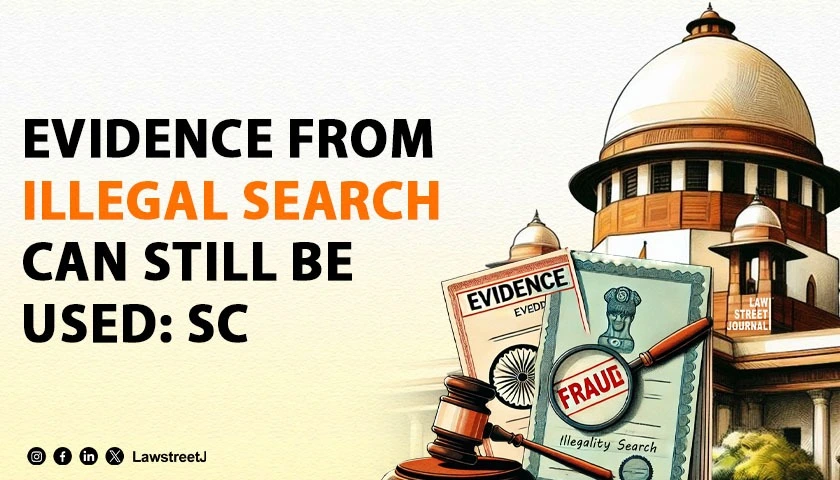On Tuesday (06/07/2021), the Supreme Court refused to entertain a plea filed by a Kerala-based spiritual practitioner seeking the release of his 21-year-old live-in partner from the custody of her parents. The bench headed by Chief Justice NV Ramana also referred to the case of pop singer Britney Spears in the US court while hearing the plea.
The SC said that the 42-year-old petitioner is a married man with two children and has dubious antecedents. The man had claimed in his plea that his live-in partner was illegally detained by her parents. He challenged the Kerala High Court judgment which had dismissed his Habeas Corpus plea seeking release of the woman.
The HC had noted that the woman was not capable of making decisions on her own.
"The thing is the facts are such and the antecedent of the petitioner is such that it does not inspire confidence," said Justice Roy.
"The girl is fragile state of mind. She is 21 and does not know what she is doing. The man is married with two children," the CJI weighed in.
Interestingly, the Court also referred to the Britney Spears case playing out in USA.
"One week back we saw a case in the USA where laws, culture is different. In USA unless an adult gives a consent they cant be given treatment. Now the entire family is on the roads because of that since a mentally unstable person cannot give consent," the CJI said.
Britney Spears case
In Britneys case, her conservatorship began after she was put on an involuntary psychiatric hold in February 2008, following a public meltdown, allegations of substance abuse, and a dramatic custody battle with ex-husband Kevin Federline. Her father, Jamie Spears, and attorney Andrew Wallet were named conservators of Britneys person, as she was deemed mentally and physically unfit to care for herself.A conservatorship is a legal arrangement in which a judge grants a guardian (or several guardians) control over a persons finances or their overall person, i.e. their daily life, financial, and health decisions, should that person be deemed unable to manage them.
"Senior Advocate Gopal Sankaranarayanan, appearing for the petitioner, said that the girl is an adult and is under the illegal detention of her parents.
"There is nothing illegal. She is with her parents," the Court said. Sankaranarayanan maintained that the woman should be allowed to decide for herself.
"Question is can she decide for herself. what is the conduct and history of the petitioner. How can the girl be entrusted to him?," the CJI asked.
Sankaranarayanan said that he was not seeking custody of the woman but only wanted that she be released from parents custody.
"The girl who is an adult should be allowed to decide for herself. The petitioner does not want her with him," he submitted.
The Court, however, maintained that the antecedents of the petitioner cannot be overlooked.
"This is a case where it is clear that she should not go to the petitioner. Rather than that its better she is with her parents," remarked Justice Bopanna.
Sankaranarayanan said that the Court should interact with the girl before taking any decision
The lawyer argued that under provisions of the Mental Health Act, 2018, the Kerala High Court should have referred the woman to a medical board for evaluation instead of taking the decision following "personal interaction" with the woman.
"Under the law, one has to see if the person concerned is capable of understanding what is happening. She has told the court what she wants, but paternalistically the court has said we will send her to her parents," the lawyer said.
The Supreme Court noted that two judges of the Kerala High Court, including one woman judge, had interacted with the woman.
"For the sake of our own satisfaction, we request the registrar of the High Court to take steps to produce the girl before the concerned district judge after one month," the SC said.
The district judge has been directed to "examine and interact with the girl and her parents regarding her well being". A report about the condition of the girl will also be filed before the Supreme Court.
The Court made it clear that it will not interfere in the matter. Nevertheless, it called for a report from the concerned District Judge after interacting with the girl and her parents.
"Taking into account peculiar facts and circumstances we are not inclined to interfere in this matter. To satisfy ourselves we request the registrar of the high court to have district judge examine the case and interact with girl and parents and send a report to this court," the Court stated in its order.








